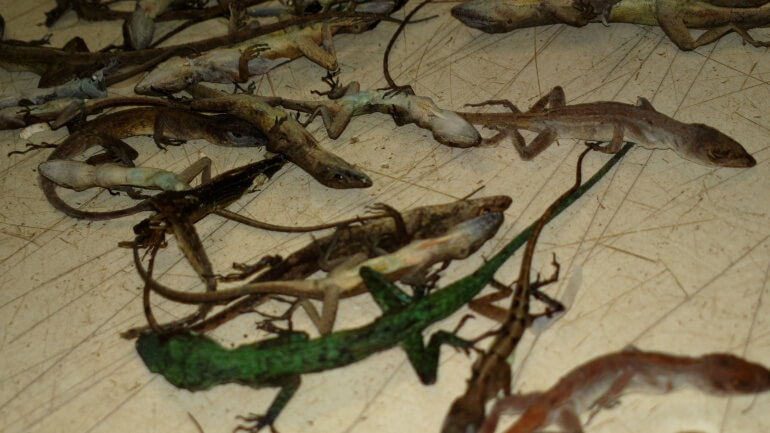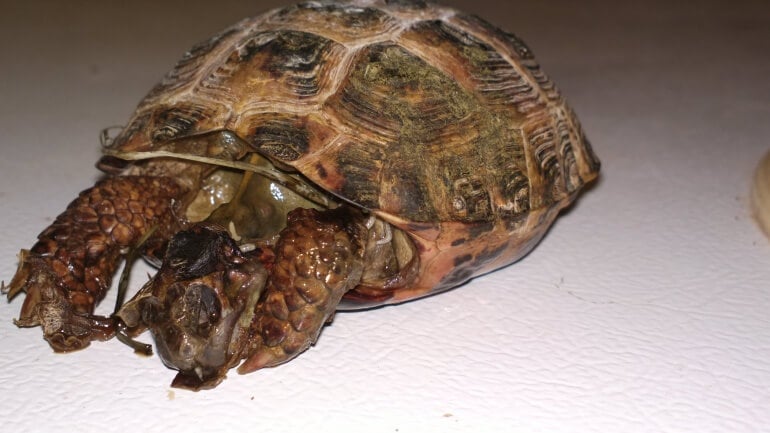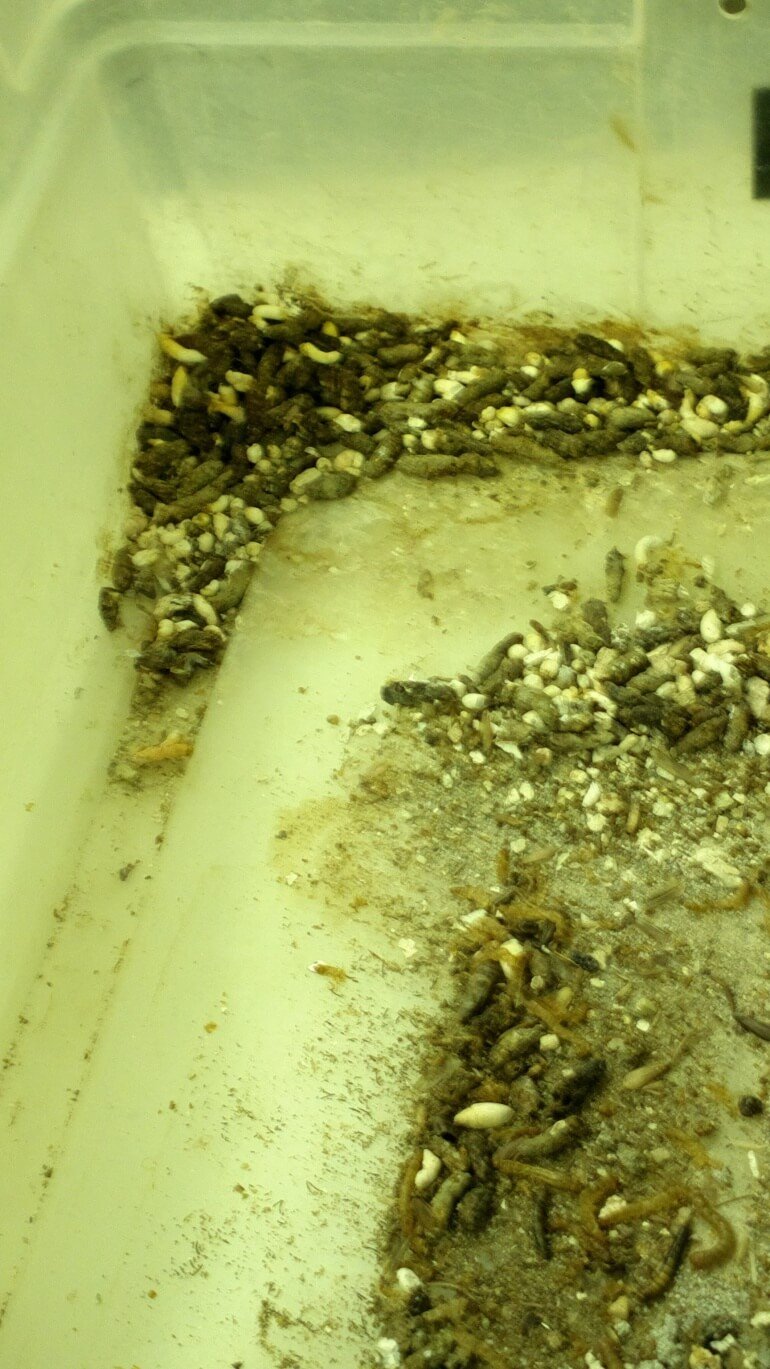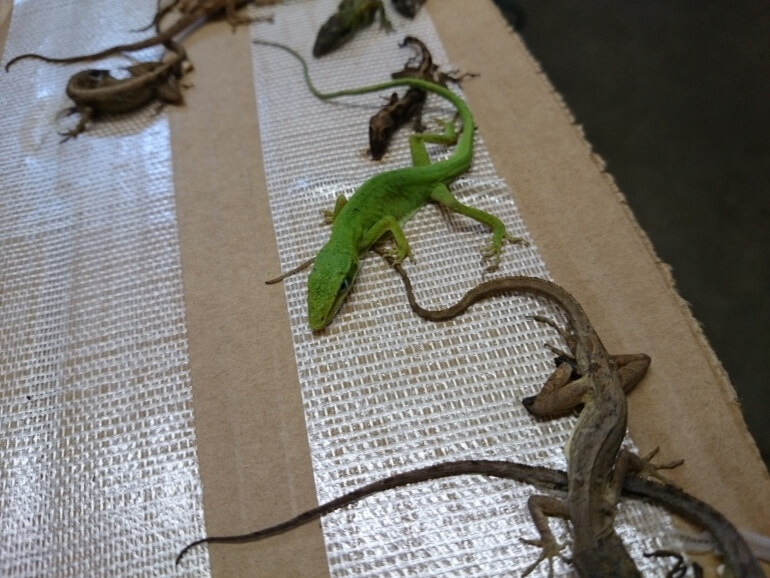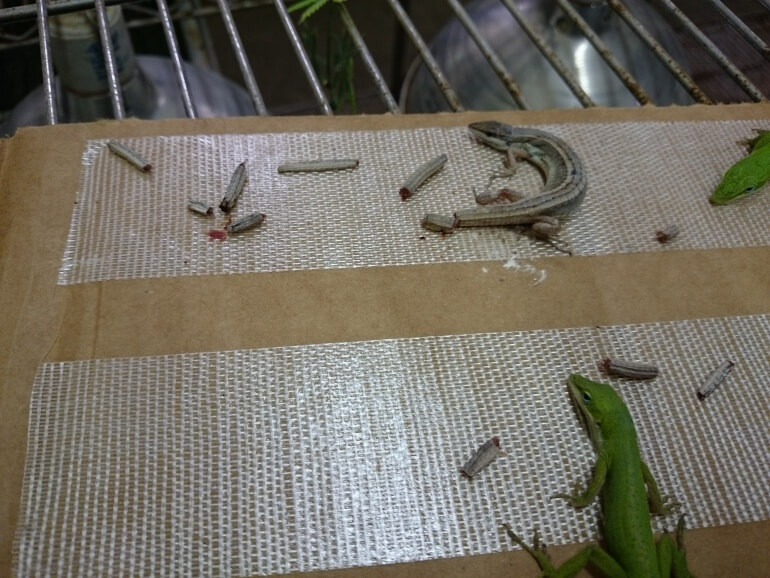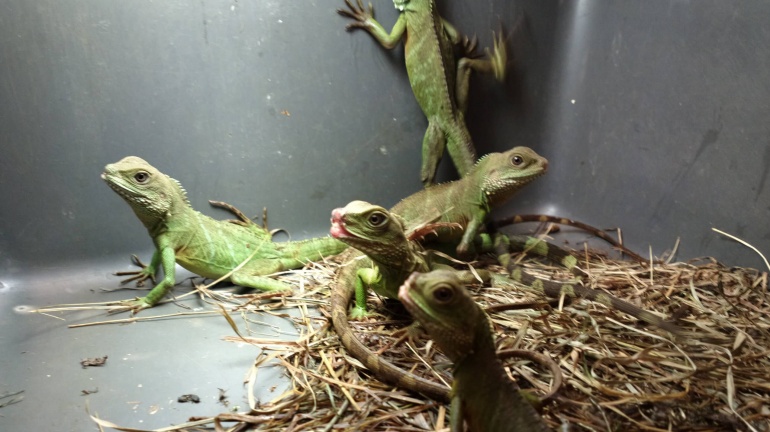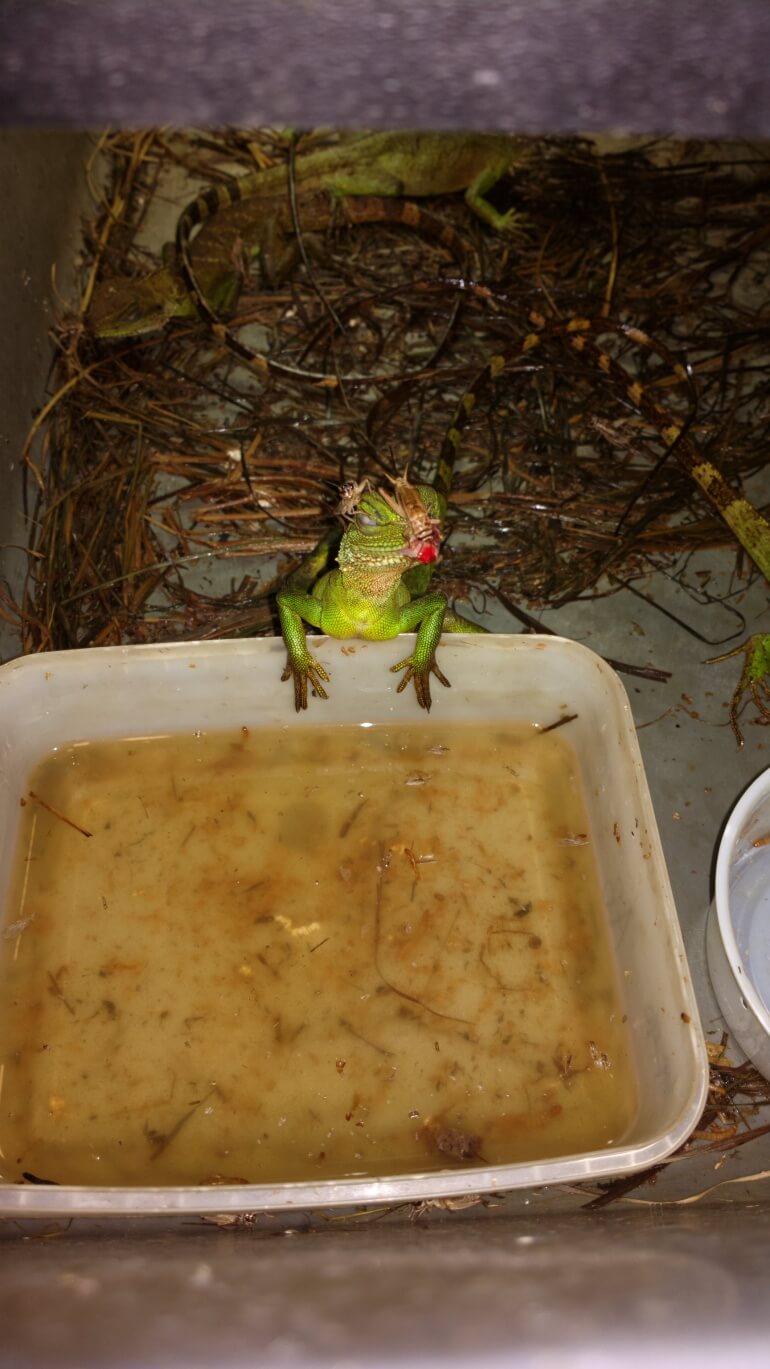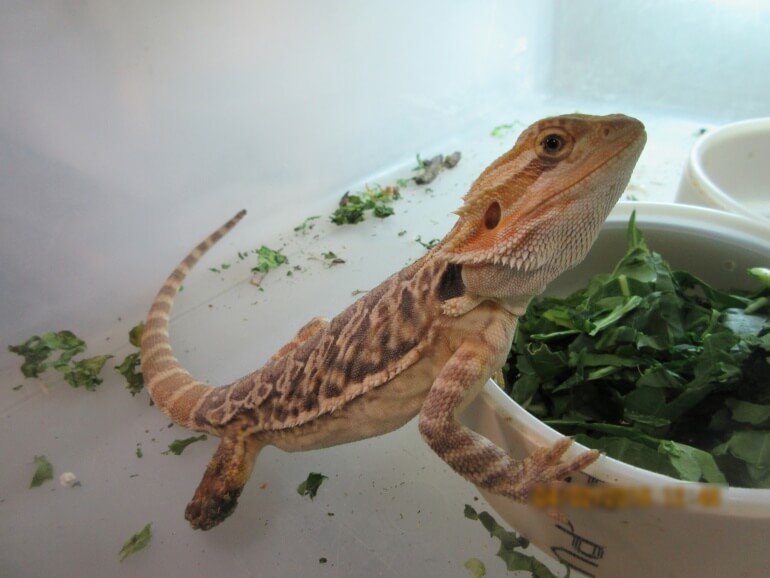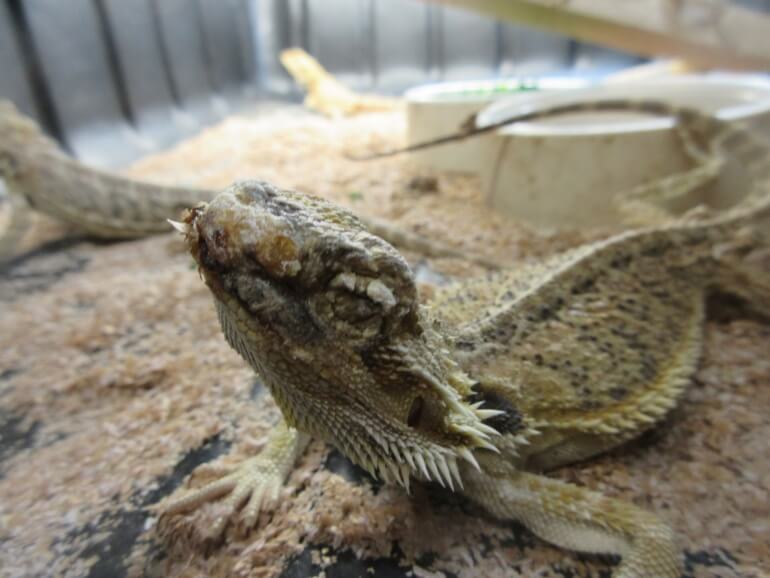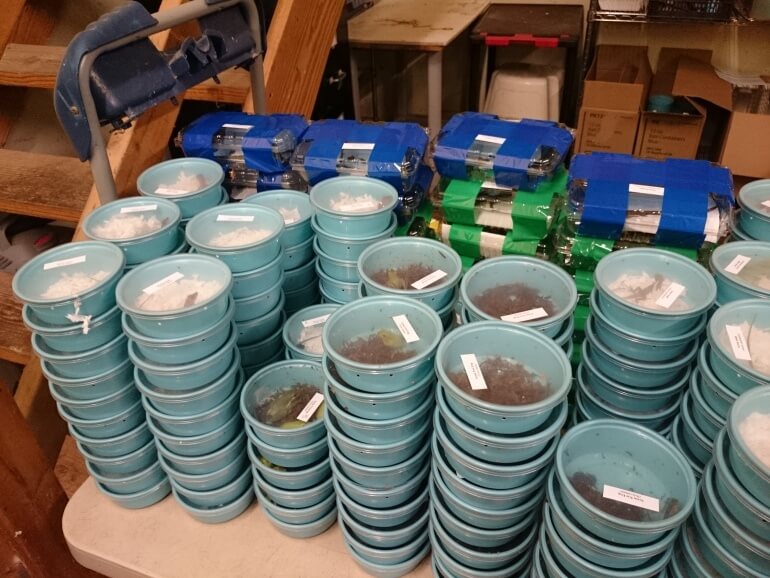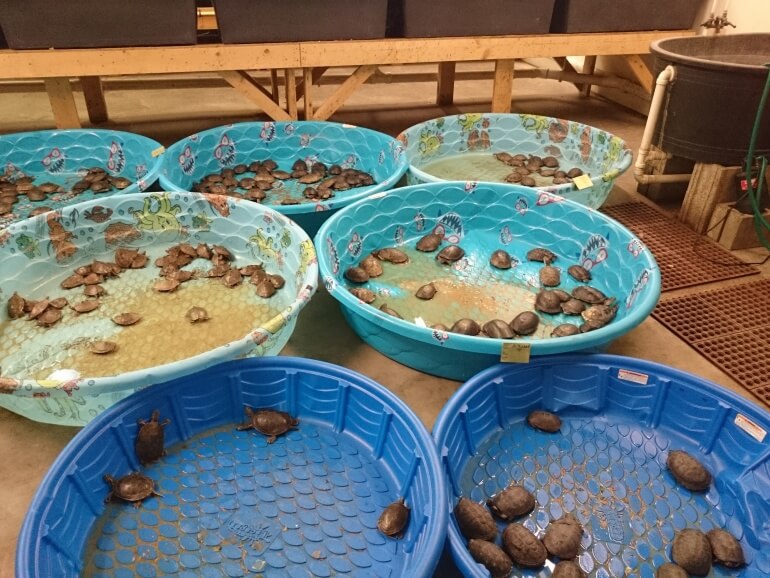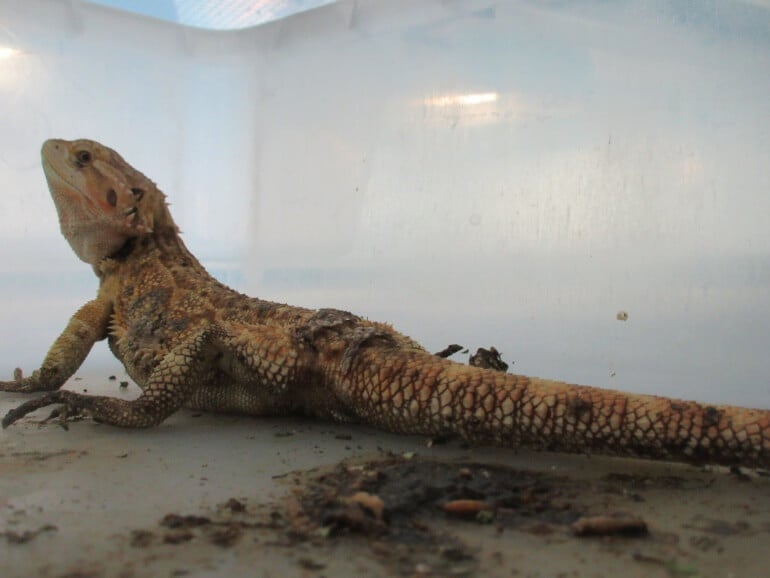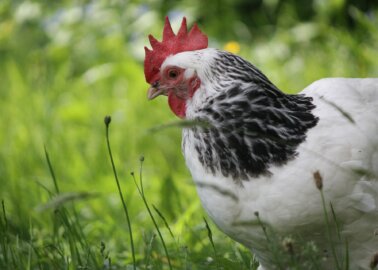The Horrors of the Reptile Pet Trade
PETA US eyewitnesses spent a combined 15 weeks at a reptile mill that breeds frogs, lizards, turtles and other animals and supplies them to pet stores across America. In addition, some of the animals are exported to Europe.
This is what they found:
The eyewitnesses documented systemic abuses and deprivation that is inherent in the pet trade. They recorded tens of thousands of reptiles and amphibians kept at the facility at any given time, and the animals were confined to barren, filthy, crowded plastic tubs and deprived of even the most basic necessities, such as heat and UV lamps, veterinary care, fresh food, and even water to drink and soak in.
The eyewitnesses documented the deaths of more than 675 animals – including these lizards – just in the parts of the facility that they worked in.
Dead and rotting animals were routinely found in enclosures with live animals. This dead Russian tortoise was found in a crowded tub with 14 live tortoises.
Several weeks’ worth of faeces built up in this and other enclosures housing geckos. Employees admitted they had “not really had time” to clean them.
Workers put down makeshift glue traps to catch escaped animals, such as these lizards. Staff did not check the traps for days and forgot where they were, leaving trapped animals to suffer and slowly die.
This lizard, who was still alive, attempted to drop his or her tail multiple times in an effort to escape what an expert deemed the “torture” of being trapped.
Many water dragons rubbed their snouts against the sides of the enclosures, abrading the flesh and even leaving their teeth exposed. This behaviour was an indication of the stress that they were experiencing as a result of cramped conditions.
Water tubs in enclosures housing water dragons were not replenished over weekends and, like this one, were empty or filthy by Monday. This water dragon had a raw, bleeding snout.
Bearded dragons had to compete for access to food in severely crowded tubs, leading to fights and bite wounds. No veterinary care was given to the lizards for their severely injured, bleeding limbs, which were left to rot off.
A manager left this emaciated bearded dragon, who was unable to open her mouth or her left eye, to suffer for more than 24 hours before putting her down.
Dozens of animals were packed up for shipment more than 24 hours before actually being shipped to PetSmart. Animals were denied water and food while they were in containers so small that some of them couldn’t even turn around.
Many species, including these turtles, were denied adequate lighting, a heat source and other basic necessities. Up to 50 turtles were kept in each of several kiddie pools situated directly on the concrete floor.
Hundreds of bearded dragons were kept in filthy, faeces-strewn tubs.
Read the full story from PETA US.
This case is not unusual. This is the sixth animal dealer with ties to large US pet-store chains that PETA US has exposed. Unsuspecting customers often have no idea about the horror from which these animals have come – or what kind of industry they’re unwittingly supporting.
The best way to end the cruelty is to avoid animal breeders and always adopt companion animals rather than buying them.
Please share this investigation to help more people learn the truth:

